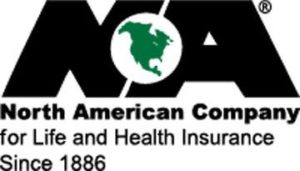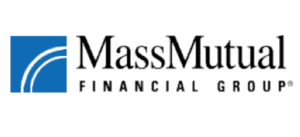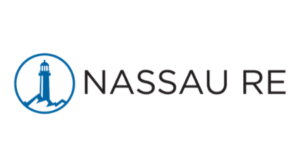Imagine a single cash value life insurance policy that powers your financial future—building a powerful retirement plan, safeguarding against disability, funding long-term care, and even acting as your personal banking system. We’ve discovered that cash value life insurance is the ultimate tool for liquidity, control, and wealth protection. It’s your “safe bucket” foundation for financial success. In this article, we reveal the top companies offering the best cash value life insurance policies to help you grow and secure your wealth with confidence.
Table of Contents:
- Market Overview: Cash Value Life Insurance Sales
- Best Cash Value Life Insurance Companies by Product Type
- Introduction to Cash Value Life Insurance
- Cash Value vs Cash Surrender Value
- Cash Value Life Insurance Benefits
- Conclusion
Market Overview: Cash Value Life Insurance Sales
The most recent market data for 2024 shows the following breakdown of new annualized premium market share and total premium by life insurance type:
| Insurance Type | Market Share (%) | Total New Premium (2025) |
|---|---|---|
| Whole Life (WL) | 36% | $5.8 billion |
| Indexed Universal Life (IUL) | 23–24% | $3.8 billion |
| Term Life | 19% | $3.0 billion |
| Variable Universal Life (VUL) | 14–15% | $2.2–$2.4 billion |
| Fixed Universal Life (Fixed UL) | 7% | $1.1 billion |
| Total (all types) | 100% | $15.9–$16.2 billion |
Industry Highlights:
- Whole Life Insurance maintains the largest market share at 36% ($5.8 billion) though this represents the lowest market share for WL since 2014
- Indexed Universal Life (IUL) continues its strong growth trend, capturing 23-24% of the market ($3.8 billion) and setting new sales records with policy count growing 10% year over year
- Variable Universal Life (VUL) has seen impressive momentum, reaching its highest market share since 2006 at 14-15% of the market ($2.2-$2.4 billion)
- Total new annualized premium has reached a record high of $15.9-$16.2 billion for the U.S. individual life insurance market
This market data highlights the continued consumer interest in cash value life insurance products, particularly those offering both protection and accumulation features.
Top 12 Best Cash Value Life Insurance Companies (by Product Type)
Top Indexed Universal Life (IUL) Companies
National Life Group (Market Leader)
Key Products: Indexed Universal Life Insurance (IUL)
Product Highlights:
- Flexible premium payments
- Death benefit protection
- Cash value growth linked to market indexes (e.g., S&P 500) with downside protection
- Tax-deferred cash value accumulation
- Tax-advantaged access to cash value
- Living benefits for terminal, chronic, or critical illness
Visit our National Life Group review for more.
North American Company
Key Products: Rapid Builder IUL
Product Highlights:
- Daily crediting of premiums to indexing accounts
- 0% premium loads for rapid cash value build-up
- High cash value accumulation design
- Flexible indexing options
- Tax advantages and living benefits
For more on this top IUL company, go to our North American Company review.
Transamerica
Key Products: Financial Foundation IUL
Product Highlights:
- Flexible premium with domestic and global index options
- Guaranteed minimum interest rate (floor)
- Federal income tax-free death benefit
- Tax-free loans and withdrawals, tax-deferred earnings
- Long-term care and terminal illness riders
- Policy value accumulation potential
For more, see our Transamerica Life Insurance review.
Mutual of Omaha
Key Products: Indexed Universal Life Insurance
Product Highlights:
- Death benefit protection
- Cash value growth tied to market indexes (e.g., S&P 500) with a cap and floor
- Tax-free income via policy loans/withdrawals
- Not directly invested in the market; principal protection
For more, check out our Mutual of Omaha review.
Nationwide
Key Products: IUL Protector II
Product Highlights:
- Flexible permanent protection
- Income tax-free death benefit
- Tax-advantaged cash value growth with indexed strategies
- Guaranteed minimum interest rates
- Long-Term Care Rider II for flexible LTC benefits
- Optional riders for enhanced protection
See our Nationwide Life Insurance review for more.
Top Variable Universal Life (VUL) Companies
Prudential (Market Leader)
Key Products: VUL Protector, PruLife Custom Premier II, PruLife SVUL Protector
Product Highlights:
- Permanent protection with flexible premiums
- Cash value growth via 50+ investment options
- Adjustable no-lapse guarantees (up to lifetime)
- Tax-deferred cash value accumulation
- BenefitAccess Rider for living benefits
- Wealth transfer and income protection solutions
See out our Prudential review for more.
Pacific Life
Key Products: Pacific Select VUL 2, Pacific Indexed Accumulator (IUL)
Product Highlights:
- High cash value growth design
- Adjustable death benefit (increases with accumulated value)
- Flexible premium payment options
- Long-term care coverage options
- Income tax-free death benefit
For more on this top insurance carrier, please check out our Pacific Life review.
John Hancock
Key Products: Accumulation VUL
Product Highlights:
- Affordable death benefit protection
- Cash value accumulation potential
- Wide selection of investment accounts and Lifestyle MVP Portfolios for diversification
- Tax-deferred growth and tax-favored withdrawals
- Optional allocation planning tool (VUL TargetTrack)
Check out our John Hancock review for more.
Top Whole Life (WL) Companies
MassMutual (Market Leader)
Key Products: Whole Life Series (Whole Life 100, 65, 10/12/15/20 Pay, High Early Cash Value)
Product Highlights:
- Limited pay options (pay premiums for only 10 years)
- Lifetime protection with guaranteed death benefit
- Guaranteed cash value that grows annually
- Eligible for annual dividends
- Level premiums, flexible payment options
- Tax advantages: tax-free death benefit, tax-deferred growth
For more on this top life insurance company, please visit our MassMutual review.
Northwestern Mutual
Key Products: Whole Life Insurance
Product Highlights:
- Lifetime protection with guaranteed level premiums
- Guaranteed cash value growth, tax-deferred
- Cash value accessible for any purpose, anytime
- Protection from market volatility
- Can supplement retirement, emergencies, college funding, etc.
For more on this top whole life company, see our Northwestern Mutual review.
Penn Mutual
Key Products: Protection Whole Life, Guaranteed Choice Whole Life, Indexed Universal Life
Product Highlights:
- Cash value enhancement rider available
- No Lapse Guarantee options
- High early cash value surrender values
- Living benefit chronic illness rider
- Death benefit guaranteed to age 121
- Guaranteed premiums that never increase
For more on this great life insurance company, please visit our Penn Mutual review.
New York Life
Key Products: Whole Life Insurance
Product Highlights:
- Nation’s largest mutual life insurance company
- Perfect Comdex rating of 100
- Strong history of dividend payments
- Excellent cash value growth
- Variety of whole life policy options
For more on this top rated life insurer, please stop by our New York Life whole life insurance review.
Ready to transform your financial future with cash value life insurance?
Schedule your free 30-minute consultation to discover how top policies can build wealth and secure your family’s future.
An Introduction to Cash Value Life Insurance
Cash value life insurance DEFINITION: a permanent life insurance policy that provides a death benefit, which also has a savings account that accumulates cash value. The cash value account in the policy grows over time and can be accessed through surrendering the policy, withdrawing from the policy or taking out a policy loan.
Inner-Workings
The inner-workings of cash value life insurance consists of a life insurance policy, which is a contract between the policy owner, the insured (often the same person), and the insurer, where the insurer agrees to pay a death benefit to the policy’s beneficiary, based on the owner continuing to make the policy’s premium payments.
Cash Value Accumulation
The premium paid to the insurer goes into a cash account, minus any costs and fees, which builds your cash value account in the policy over time.
Cash value can accumulate within a policy in a number of ways and the formula used will dictate the type of permanent life insurance policy.
Rather than deep diving into the various types of life insurance policies, this article will keep a more general focus on the idea of accruing cash within a policy. However, by clicking any of the article links you can learn more about that particular subject.
For our best cash value life insurance companies featured in this article, we will emphasize leading companies in each category of permanent life insurance that offer excellent cash accumulation and growth opportunities.
Also note, term life insurance is not included in the following discussion for the simple reason that term insurance policies do not typically build cash value. Further, unlike cash value life insurance, once the term is up, your life insurance policy ends and will lapse if you do not renew it.
Cash Value vs Cash Surrender Value
It is important to differentiate between total cash value and cash surrender value.
The total cash value is the total accumulated cash in your policy.
The cash surrender value is the amount of cash in your policy, minus any surrender charges for early policy withdrawals or termination.
In the early going, your total cash value may be higher than your cash surrender value due to the surrender charge imposed by the insurer. This is particularly true of universal life policies. However, the surrender charge will go away, usually around the 10-15 year mark after policy issue.
The best life insurance coverage is somewhat subjective but we define it as a cash value policy that provides protection, limits risk, builds wealth and creates a legacy. It should include high cash value growth, with built in protections against loss, be tax advantaged and offered from a highly rated insurance company.
Cash Value Life Insurance Benefits
1. Contractual Rate Of Return
Cash value whole life insurance offers a contractual rate of return as well as likely dividends and additional growth that is not dependent upon the financial markets.
This first point applies to traditional whole life insurance coverage and not to alternatives, such as variable universal life, which may be tied to the stock market.
Traditional whole life insurance offers a contractually guaranteed rate of return based upon the cash value deposited.
Whole life policies also offer non-guaranteed “up side” that essentially improves upon the guaranteed portion through the payment of dividends.
While the dividends are not “guaranteed” most of the established companies have paid dividends consistently for the last 100 years regardless of the markets or other financial circumstances.
Depending upon the policy projections, the rate of guaranteed growth is usually around 4% in today’s interest climate and this policy growth may be increased further by utilizing some of the strategies discussed below.
Non-Guaranteed Returns
Other types of permanent life insurance policies that do not have contractually guaranteed returns may provide higher rates of return. For instance, an indexed universal life policy may return 9-13% in a given year, depending on what cap rate and participation rate of the policy.
Another type of permanent life insurance is variable universal life insurance, which has returns correlated to the stock market, so returns in excess of 10-20% or more are not out of the question in booming stock market years.
2. Lasts Your Entire Life
Cash value life insurance lasts for life as long as you pay premiums and it may get less expensive as you get older and the policy matures.
Some financial spokespeople, most notably, Dave Ramsey and Suze Orman, push a life insurance strategy that is to “buy term and invest the difference“, AKA BTID.
Essentially, they are pitting whole life vs term life, advocating that everyone purchase term life insurance, because it costs less than whole life insurance, and then investing the difference in whatever retirement account, mutual fund or other investment…that they happen to recommend, of course.
Without diving too much into a repudiation of this common objection, suffice to say that this blanket advice tends to miss a few critically important details.
First, term life insurance gets more expensive as one ages AND whole life insurance gets cheaper.
So, consider which is a better retirement plan…to defer your life insurance and pay exorbitant premiums later or simply go without any life insurance coverage.
Alternatively, you could pay more for whole life when you’re younger and enjoy fully paid-up life insurance protection as a retiree.
Term Policies Don’t Pay Out
In fact, the insurance companies know that most term life policies never pay a death benefit because the policy expires before the person dies. It is believed that 98-99% of term life insurance policies expire without paying out.
Essentially, the insurance company spent little to provide the death benefit.
On the other hand, whole life policies ALWAYS pay a death benefit if kept in force and therefore they are more expensive at first.
Dave Ramsey suggests that this increasing expense should be handled by “investing the difference” when you’re young so you can self insure. I would suggest that this is dangerous advice to say the least.
The historic returns of the stock market have not been shown to outpace the steady 4% guaranteed return of a whole life policy, further benefited from potential dividend payments ranging from 2-3.5% and up depending on the interest rate environment. That is a total potential return of 7% annually income tax free!
In contrast, assets such as IRAs and 401k plans stand to be depleted by taxes even if the market delivers an “uncharacteristic” consistent return.
Prudent estate planning dictates that as we age, the welfare of our loved ones gets more important AND our expenses for health care and insurance tend to increase. So life insurance with a permanent, growing death benefit is inherently wise and effective for providing peace of mind, securing your financial future and providing loved ones with needed resources.
3. Tax Free Cash Accumulation
Cash value life insurance accumulates cash value with after tax dollars, much like a Roth IRA, but offers total flexibility for cash withdrawals and policy loans.
The IRC section on cash value life insurance breaks down the tax incentives of this type of asset.
Basically, cash value grows income tax deferred. If you withdraw from the policy, all premiums paid up to your basis can be withdrawn tax free.
Further, life insurance loans are tax free.
Now compare this with a Roth IRA.
Most people have been privy to the financial community’s raving about the Roth IRA in recent years.
For those of you who haven’t heard, the pitch is for the IRA or 401K is to ask whether a person believes that taxes will be lower now or in the future.
A common answer upon reflection is…higher in the future. Put another way, I pose the same question concerning whole life insurance by asking…is your dollar worth more now or in the future?
To answer the question, I suggest that the dollar in your hand right now is more valuable than that future dollar for a couple of reasons.
First, inflation dictates that your dollar will be less in the future.
If you think inflation doesn’t apply because it hasn’t been talked about recently and the Fed hasn’t raised rates, think again.
Inflation is the reason that you’ll pay more for housing, food, clothing, or a new car today than 10 years ago.
Another reason that your dollar is worth more right now is the likelihood of increasing taxes.
Simply put, if you have 1 million dollars in a 401k or IRA, that isn’t really what you have…depending upon your tax bracket, you can deduct 25%-35% or more from that number.
So, if you’re noticing that I’m analyzing the typical 401K and whole life insurance together, you’re correct and I’m doing so because a whole life insurance policy operates more like a ROTH IRA but with greater flexibility, as well as a death benefit.
Whereas whole life policies offer total flexibility for withdrawing cash from the cash value account AND taking policy loans, there are actually a series of restrictions for IRA withdrawals, and 401K loans and withdrawal rules are even worse!
Another consideration is the fact that the 401K Plan or IRA is reliant upon the roller coaster of success and failure that is the financial markets.
THE ULTIMATE FREE DOWNLOAD
The Self Banking Blueprint
A Modern Approach To The Infinite Banking Concept

4. Wealth Storehouse
Cash value life insurance is an extremely safe investment that can be utilized as needed to fund higher risk/return investments.
There is a reason that the largest banks and financial institutions invest billions of dollars in bank owned life insurance (BOLI) and corporate owned life insurance (COLI).
These are AA and AAA rated companies that have not only weathered the most tumultuous of markets but have even continued to pay dividends through these turbulent periods.
As discussed, most financial advisors who recommend a “bucket system” for “saving”, “investing”, “emergencies”…would also agree that the savings bucket should be a safe place for funds that one cannot afford to lose.
Thus, it is not appropriate to place savings in the markets for obvious reasons. Yet, isn’t the financial community striving to convince you to do just that?
Of course, you can leave your savings in the bank and earn less than 1% interest.
Herein lies the inconsistency in Dave Ramsey’s recommendation because although he advocates an “emergency fund” he fails to see the utility of using a permanent life insurance policy for this very purpose, despite that fact that life insurance has asset protection in many states.
5. Recapturing Interest
Cash value life insurance can be strategically used to maximize the cash value and tax savings while recapturing debts for financing other necessary items, such as vehicles, real estate investing, or business expenditures.
The basic idea behind is that a policy holder can design a whole life policy to accrue cash value more quickly for the purpose of setting up a unique vehicle for growing cash value to be used for retirement planning or to purchase assets.
This strategy is highly favorable to permanent life insurance because it allows the individual to recapture all interest and expenses that are being paid to third parties, resulting in ever increasing high cash value account growth.
Ask yourself this…
A question to consider that is absolutely critical is how much of your current payments for your house, car and other debt laden assets is being applied to the principal? It isn’t the rate of interest but actually the volume of interest that is important.
What that means is…
When you structure a whole life policy to recapture this debt and then commit to paying back the debt (at least the interest) it is possible to put your policy gains (and death benefit gains) on steroids.
Moreover the flexibility of cash value life insurance allows you to access the funds for other investments when opportunities are made available, such as during market crashes and bubbles popping.
For example…
If you’re a real estate investor, the cash value of your policy can be accessed for real estate investments and the return on investment can be exponential because you’re making a return on the funds already in your policy…(“it’s your money”) as well as the return on your real estate investment.
If you’re a business owner, and are leasing equipment or facilities, there are strategies to recapture your borrowing costs and the results in policy growth can be dramatic.
This strategy all begins with a properly structured cash value life insurance policy and a commitment to treating your policy like any other business venture.
Yes, the cash value in the policy takes some time to accrue in the same way that any other business requires start up capital to get going…but when the policy is funded, the magic begins.
And funding a policy can be done in months a couple of years, not 10+ years as many suggest based upon conventional policy designs that focus on death benefit.
Conclusion
Cash value life insurance is an excellent asset to own. Our goal in this article was not to make you an expert in life insurance but to show you our expertise. That way you can be confident we can help you find the best company and policy for you, based on your unique needs and goals.
As the 2025 market data shows, different types of cash value life insurance continue to evolve and grow in popularity. Whether you’re looking for the guaranteed growth of whole life, the market-linked potential of IUL, or the investment flexibility of VUL, there’s a cash value policy that can help you achieve your financial goals.
Please sign up for a complimentary strategy session today to learn more about how cash value life insurance can benefit you.
Unlock the Power of Cash Value Life Insurance for Your Financial Future
Ready to explore how cash value life insurance can serve as your financial foundation? Our expert advisors will guide you through a personalized analysis to see how this versatile tool can support your goals—whether it’s building wealth, securing retirement, or creating a personal banking system.
- ✓ Discover how cash value life insurance fits into your unique financial plan
- ✓ Compare whole life, IUL, and VUL options to find the best fit
- ✓ Learn about tax-free growth, loans, and wealth-building strategies
- ✓ Understand the safety, flexibility, and long-term benefits of top-rated policies
Take control of your financial strategy with a free 30-minute consultation tailored to your needs.
No pressure, no commitment—just clear, expert insights to help you decide if cash value life insurance is your key to financial freedom.
















